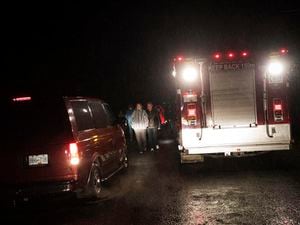This is what it’s like to experience a tsunami alert first-hand
The warning was prompted by an earthquake in Alaska, magnitude 7.9.

In some parts of the world people can only imagine what the regular threat of a tsunami feels like, but it’s a very real occurrence for others.
Dean Anderson is a Canadian living in Port Alberni, British Columbia. The 34-year-old has lived most of his life there, and was struggling to get to sleep when a tsunami siren really woke him up.
The warning was prompted by an earthquake in Alaska, magnitude 7.9. What followed were tsunami warnings going out for coastal Alaska, British Columbia and the West Coast of the US.
For those wondering what a tsunami siren sounds like, this is what Anderson experienced in Port Alberni in the early hours.
“This is the fourth time I have heard a tsunami warning,” he continued. “Three times here in Port Alberni and once when I was working up north in Stewart.”
Anderson, who was alone when the siren went off, said everybody in Port Alberni is familiar with the sound of the warning system, although according to him it’s something you never quite get used to.
“You hear that sound and you just get this feeling of dread, like a heavy ball in the pit of your stomach,” he said. “You’re thinking: ‘Is this the one?'”

The tsunami warning was cancelled after a few intense hours, and while there will likely be more alerts in the future, moving is not something Anderson is seriously considering.

“It doesn’t matter where you go, there’s always something that mother nature can throw at you,” he continued.
“It’s best to just be prepared. Have a few days supply of food and water, copies of all your ID and important documents, blankets and a tarp and rope in a duffel bag ready to go.”





